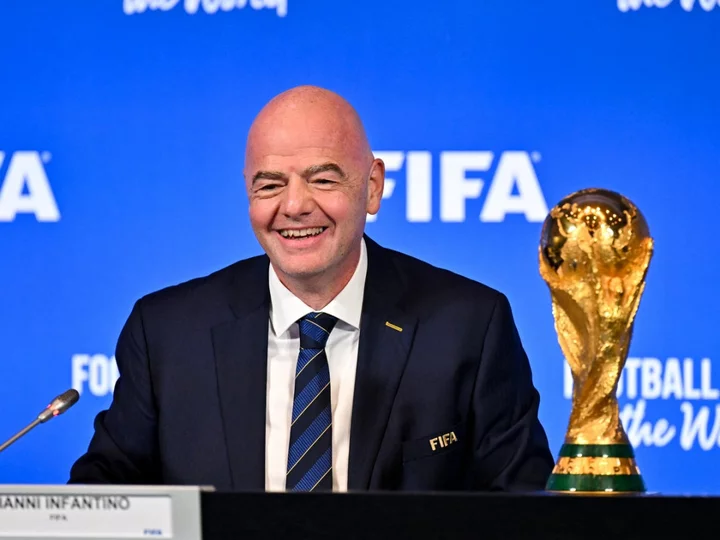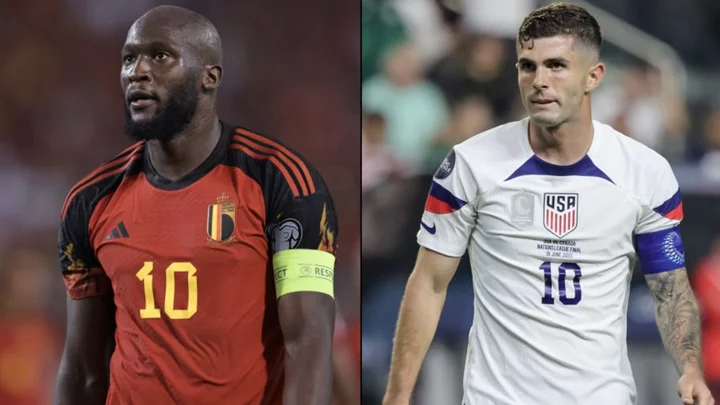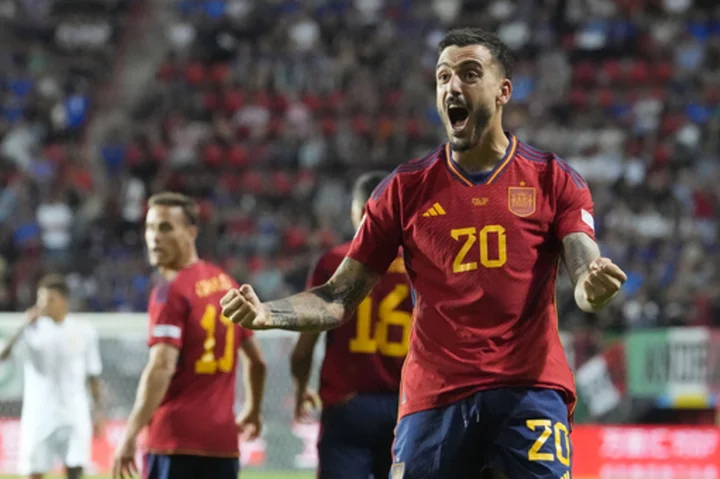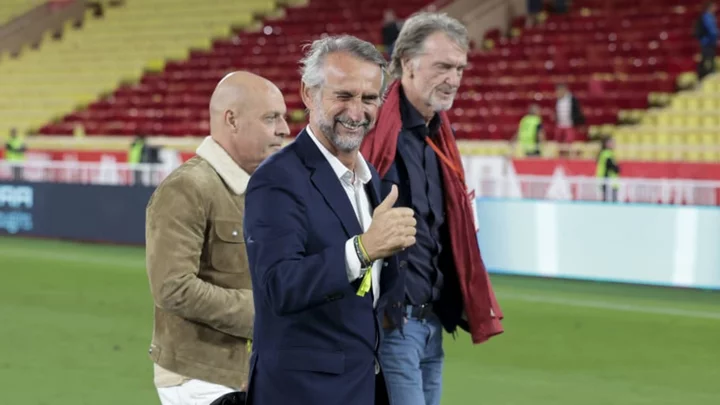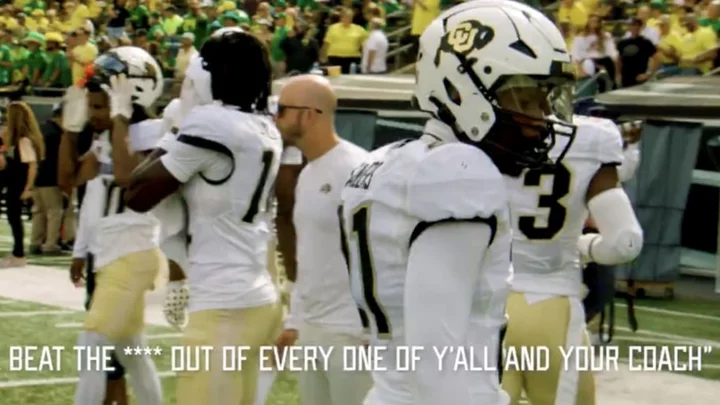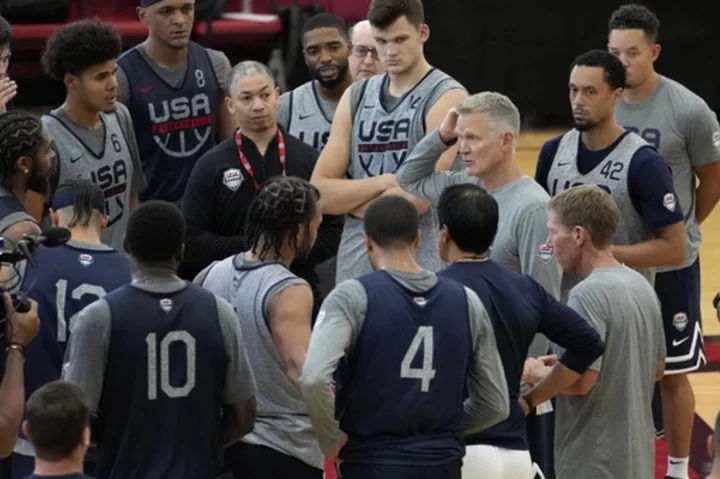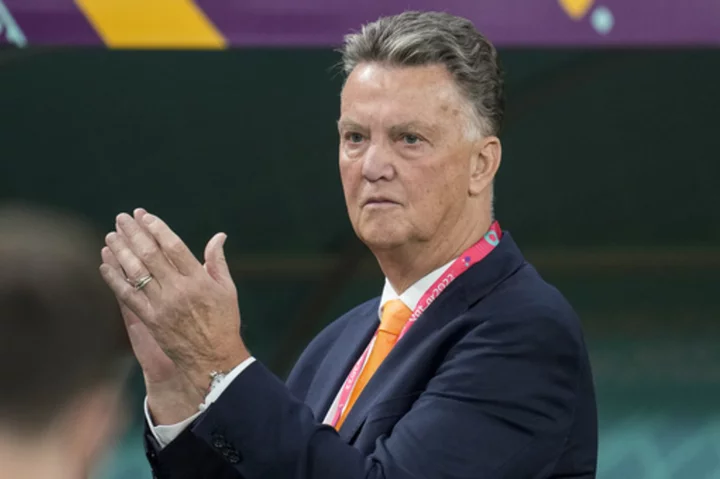After Australia confirmed they would not bid for the 2034 World Cup to leave Saudi Arabia as the sole candidate, a number of “concerned” football officials said they would wait to publicly speak until the bid process became clearer. Then, a few hours later, Fifa president Gianni Infantino appeared to confirm it all on his Instagram account.
“The next two editions of the Fifa World Cup are set to be hosted in Africa (Morocco) and Europe (Portugal and Spain) – with three celebratory matches played in South America (Argentina, Paraguay and Uruguay) – in 2030 and in Asia (Saudi Arabia) in 2034.”
It was seen as an interesting way to announce what is one of football’s major decisions. So much for going to the member associations for ratification, for a confirmation that was scheduled to come in the fourth quarter of 2024... A decision that very few in football seem to actually want has involved very little discussion at all, at least in public. Like the 2030 World Cup that paved the way for it, it has almost been imposed on the game.
That is despite the reality that Saudi Arabia 2034 will involve most of the same discussions as Qatar, but on a completely different scale.
The bidding terms were already altered so the kingdom only needed to have four of the 14 required 40,000-seater stadiums, but that means 10 new arenas have to be built. That will involve the same migrant labour system that was such a core criticism of Qatar, but without yet any of the reforms. Saudi Arabia meanwhile has a far more criticised human rights record than its smaller neighbour with far graver issues like capital punishment now coming to the fore. That is because the kingdom is way behind Qatar in terms of progressive reforms, which will foster a much more difficult conversation about women’s rights and who actually feels comfortable attending the World Cup.
But corruption? The accusations of bribery that shrouded how the 2022 World Cup was won? There’s no need to get into any of that because it’s all been so smooth, which of course brings us to the modern Fifa, as well as the very governance of football in the 21st century.
While Sepp Blatter was actively against Qatar getting the World Cup in 2022, it is pretty clear that Infantino looked on this favourably.
It has come as part of strengthening the relationship with the kingdom and Mohammed bin Salman, amid an alignment of ambitions. The crown prince has sought to make the sport a core of his Vision 2030 reform, in part for its immense global popularity, in part for his country’s genuinely vivacious football culture.
Infantino is meanwhile seeking to evolve Fifa and the greatest part of that is harnessing the immense power of the club game. A World Cup is only every four years, after all. The club game is all the time and everywhere.
“How many people outside of Italy are supporting the Italian national team,” Infantino pondered in October 2019. “Not many, but when you look at how many people are supporting Real Madrid or Barcelona in Spain, this goes much beyond the Spanish borders. These are hundreds of millions of people all around the world…”
Eyeing the huge revenues of the Champions League, Infantino has wanted his own version, which is why the Club World Cup is to be expanded to 32 teams from 2025. To make that as glamorous as Uefa’s showpiece event, though, the Fifa president knows he needs the big European names. So he needs funding to make it attractive, especially when previous talk has been about offers of £80m for competing.
Saudi Arabia is one of a few states from the global south that have been doing more business with Fifa. A sponsorship deal with Visit Saudi for the Women’s World Cup – ironically held in Australia and New Zealand – already caused a player revolt. Saudi money meanwhile formed part of a Softbank fund that was supposed to finance the previous version of this tournament.
From all this, a path has been smoothed for Saudi Arabia to get what it really wants, which is the World Cup. The stadium rules were changed. Rivals were taken out of the running. The Saudis had previously been in the running for 2030, which already had Morocco-Spain-Portugal offering a persuasive commercial argument and Argentina-Paraguay-Uruguay offering a persuasive romantic argument due to the centenary of the first World Cup in Montevideo.
From what was potentially the most split voting process of all, a much cleaner solution was raised.
The South American countries would get three games to recognise the centenary, and the rest of that World Cup would be held in Morocco-Spain-Portugal. Given Fifa’s continental rotation rules and how 2026 is to be staged in Canada-Mexico-USA, that left only Asian and Oceania countries eligible for 2034. Asia quickly fell in behind Saudi Arabia and it should be noted that Infantino has long built a strong alliance with the Asian confederation. They vote for him as a bloc, in presidential elections that don’t actually have competitors.
Rather than the transparency that was supposed to define World Cup democracy after the scandals of 2018-22, football was effectively presented with one choice, all the major moves having taken place in meetings behind closed doors.
The point to all of this is not to already have the discussion surrounding Saudi Arabia or other World Cups. It is about, as various sources put it, “the failure of football governance”.
It certainly doesn’t feel like true democracy and this is regarding decisions that change the face of the entire game.
So, amid all of the discussion about Saudi Arabia, the wonder is why there is not more debate about football’s presidential structure just not working for the sport.
This is not unique to Fifa after all. The global body, appropriately enough, just represents the most high-profile example from the top down. Uefa and the continental confederations have similar structures.
Most of these presidential elections since the 2015 football governance reforms, including the last two from Uefa for Aleksander Ceferin, have been single-candidate campaigns. This gives the eventual incumbent a significant mandate in itself but also comes in a context where there is no “opposition” or multi-party system to keep democratic processes in check once the president is in power. They in effect become executive presidents, with a huge amount of influence to set the direction of the game for decades. Everything flows from the top down, although presidents inevitably spend a lot of time cultivating power blocs. It is why many describe Infantino’s “today I feel…” speech as political genius rather than simply bizarre, since he was speaking to a huge core of constituents that reject western Europe’s perception of the game.
Infantino is widely seen as having Africa and Asia sown up in terms of votes. More generally, confederation meetings are described by various people involved as “muted” with only the presidents really speaking, unless it is to express agreement. Dissent or disagreement, as figures like Norwegian president Lise Klaveness have found, is rapidly shut down. This is in part because the president gets to appoint the committees, which everyone wants to be on, so it means no one steps out of line.
This problem of power invested in the role is then compounded by the power of tournaments themselves. It is quite an intoxicating thing to be able to fly around the planet on private jets, “have every door opened” – in the words of one prominent source – and be able to bestow the most popular events in the world on countries. This brings all the pomp and circumstance of a major head of state, but with none of the responsibility or the internal resistance.
Figures with long knowledge of how football governance talk of how presidents get “power corrupted”, if not financially corrupted. “Ceferin has changed,” one source who knows him says. It was similarly noted by people in English football how, after the Super League, Ceferin was much more content to thank heads of state rather than football administrators.
A tension between Fifa and Uefa over the game’s calendar has meanwhile evolved into an increasingly personal rivalry between Infantino and Ceferin, that drives a lot of modern football.
All of this has created a situation where, to bring it full circle, a series of tournament votes where there have been single candidatures too.
Although 2026 did have Morocco, it was seen as a fait accompli for Canada-Portugal-Spain and that was the start of a series of five successive European Championships and World Cups where there was only one bid.
Is this really how the world’s only truly global game should be governed, especially when that status gives it such profound political power, and it consequently faces a number of existential threats?
Decisions of huge importance are taken out of the hands of those most affected. It all speaks to a dangerously split game, prone to all sorts of influences, but this is one huge reason why it is split in the first place.
There’s similarly an argument that this isn’t really about individuals in the roles, even if everyone obviously has personal responsibilities. It is what the system produces.
The system needs to evolve. There should be wider-reaching outcomes than the mess of 2030, or Saudi Arabia getting 2034.
If the Russia-Qatar decisions prompted regime change at Fifa, this should prompt a change of the entire governance model.
Read MoreSaudi Arabian World Cup in 2034 sparks ‘significant concern’ from major leagues
Lionel Messi, the complete footballer who completed football, finally leaves the Ballon d’Or stage
Enjoying the Qatar World Cup? Here is the reality hiding in plain sight
The year that sportswashing won: A season that changed football forever
Sportswashing is about to change football beyond anything you can imagine
First golf, now football? Saudi Arabia’s grand plan and the 72 hours that changed everything

